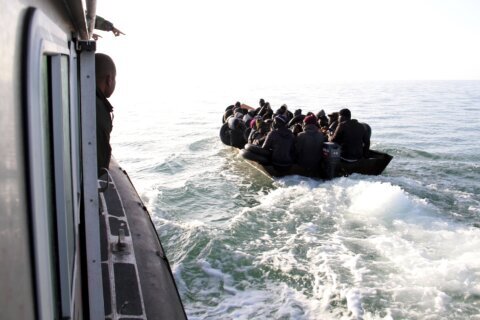GENEVA (AP) — Switzerland’s intelligence agency says a widening rift between Western democracies and autocracies like Russia and China has underpinned a rise in spying activities, warning that Switzerland will move to keep Russian agents off its soil if necessary.
The Swiss Federal Intelligence Service, in an annual threat assessment presented on Wednesday, said the Alpine country is facing a “deteriorated” politico-security environment, in part due to fallout from Russia’s invasion of Ukraine. It added that security and defense cooperation in Europe is likely to become increasingly important for Switzerland — which has long touted its neutrality.
Foreign intelligence services in Switzerland, the report said, are already targeting and spying on critics of their leadership back home or on members of ethnic and religious minorities on Swiss soil.
“Geneva remains a hotspot for spying activities,” it added. The Swiss city is home to many international and United Nations institutions and advocacy groups.
The FIS noted that other European countries have expelled Russian intelligence officers, and Switzerland “will use tools at its disposal, and, notably, entry bans, that can prevent these intelligence officers from entering Swiss territory.”
Foreign agents continue to try to acquire equipment in Switzerland that could be used for weapons of mass destruction programs or the devices that could be used to deliver them, the report said.
Turning to the international environment, the FIS said that with Russia “pursuing imperialist objectives in Ukraine above all, its desire for conquest has taken precedence over its economic interests.” It noted that Moscow’s strategy is likely to continue despite military setbacks in Ukraine.
China under President Xi Jinping, meanwhile, is unlikely to ease back from its strategic partnership with Russia, it said, and Beijing has shown itself “combative and intransigent” with territorial claims against India and neighbors in the South China Sea.
Overall, the report said “increased competition between the great powers and some emerging regional powers” has spurred “an overall escalation of espionage activities.”
Those include conventional spying, cyber-snooping, disinformation, sabotage and the use of lethal violence by some countries “against people deemed undesirable” both at home and abroad, it said.
Copyright © 2024 The Associated Press. All rights reserved. This material may not be published, broadcast, written or redistributed.







